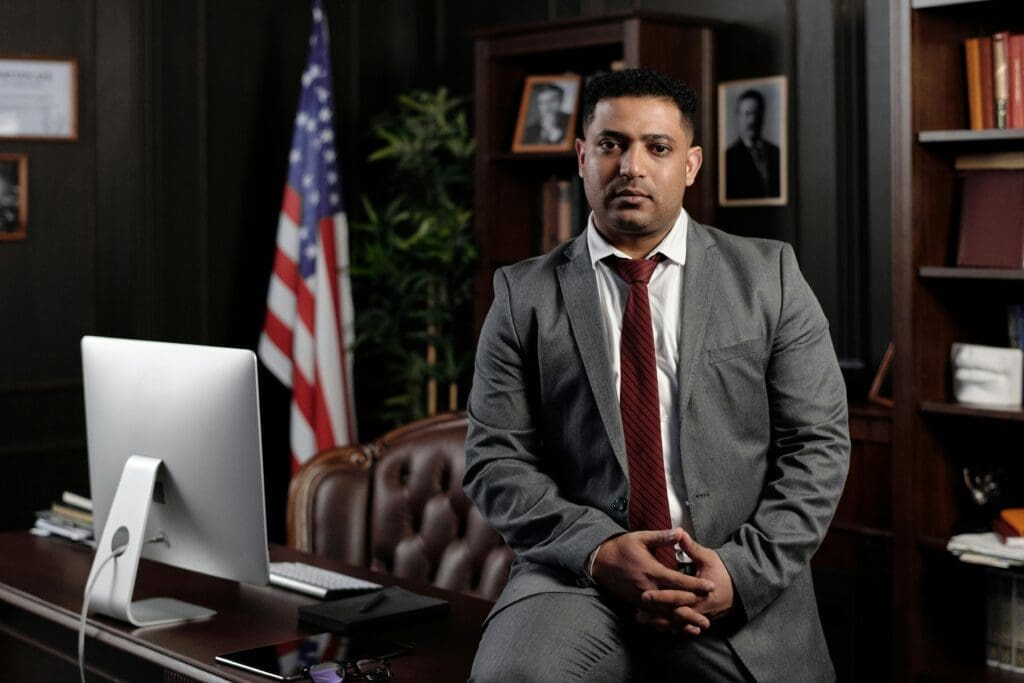You spend your days handling immediate tasks and juggling responsibilities. In the process, long-term goals often fall by the wayside. If you’ve meant to update—or even begin—your estate plan, you’re not alone. Many Nevada residents say they simply haven’t gotten around to it. One way to break the cycle is through a personal or family planning retreat that helps you prioritize what matters most, including your estate planning strategy.
Estate planning is easy to delay. It doesn’t shout for your attention the way work deadlines, family obligations, or health appointments do. But when you create space to reflect—such as through an annual planning retreat—you give yourself the opportunity to make proactive decisions that support your values, protect your family, and build long-term security.
By stepping out of your daily environment, you reduce distractions and increase focus. Whether your retreat is a weekend getaway or a quiet day at home, it becomes a protected space for planning. You don’t have to complete everything, but you can finally move forward on the estate planning tasks you’ve been meaning to address—like choosing a guardian or making a list of your assets.
During your planning retreat, you might explore goals around career, family, or finances. Be sure to include estate planning in your reflection. If you've recently experienced life changes—like marriage, parenthood, a home purchase, or the loss of a loved one—those moments should trigger updates to your estate plan.
Estate planning is often misunderstood as something only the wealthy need. In truth, it’s about ensuring that your wishes are respected and your loved ones are provided for. A retreat allows you to think through these important topics without urgency. Consider what you would want to happen if you were no longer able to make decisions. Who would speak on your behalf? Who would care for your children? These are the kinds of decisions a well-structured Nevada estate plan puts in writing.
The difference between a wish and a goal is a plan. During your retreat, use goal-setting frameworks to turn estate planning ideas into next steps. Write them down, assign deadlines, and make them actionable.
Start by listing estate planning goals like:
Once you’ve written these goals down, you can outline steps toward each one. Maybe the first step is researching Nevada estate planning laws or scheduling a consultation with an attorney. Creating a checklist provides structure and accountability. When you return to your daily life, you’ll have a roadmap in hand—not just a vague sense of needing to “get to it.”

Estate planning is more than paperwork. It’s an exercise in clarifying what matters most and aligning your plans with those values. A retreat gives you the space to think about your legacy: What do you want to leave behind? How should your estate benefit the people and causes you care about?
Use this time to reflect on questions like:
You can also use the time to write personal letters to your loved ones or document preferences that may not appear in formal legal documents but still carry emotional weight. Then, when you're ready, a Nevada estate planning attorney can help formalize those intentions in a legally valid and enforceable way.
Every state has different laws governing probate, guardianship, and property distribution. In Nevada, these laws can impact everything from who inherits your assets to how long your family might wait for access to them. That’s why it’s essential to work with an attorney who understands the local landscape.
Whether you’re setting up a simple will or a more advanced trust, taking time during a planning retreat to think through your Nevada-specific estate planning needs makes your legal preparations more meaningful. It ensures that your plan reflects your life as it is—and as it’s likely to evolve.
If you’ve been thinking about estate planning for years but haven’t started, you’re not alone. According to a recent Caring.com survey, fewer than one in four Americans have a will—and nearly half say they’ve put it off simply because they haven’t gotten around to it. But starting the process doesn’t have to be overwhelming. A planning retreat helps you break it into manageable steps.
Set aside a weekend, an afternoon, or even a quiet morning with a notebook and a plan. Reflect on what’s changed, what’s ahead, and what you want to put in place. Then take the next step by scheduling a meeting with a Nevada estate planning attorney like those at Anderson, Dorn & Rader who can help you turn your ideas into a legally sound plan.
Estate planning requires a forward-thinking mindset. As someone considering parenthood, adoption, or expanding your family in Reno, NV, you may wonder how to reflect these possibilities in your estate plan. Is it possible to plan for a child who hasn’t yet arrived? More importantly, should you?
The answer lies in striking the right balance between proactive planning and maintaining flexibility. When done well, an estate plan can prepare for your growing family without becoming overly complex or outdated. Here’s how to address unborn or future children thoughtfully within your estate planning strategy.
Including future children in your estate plan is more than a legal formality—it’s a way to ensure your legacy supports your entire family, no matter how it evolves. If you pass away before updating your estate plan to reflect a new child, you risk unintentionally leaving that child out.
That’s why the question isn’t whether you should plan for unborn children—it’s how to do so in a way that preserves clarity and simplicity. A well-drafted plan prevents confusion among loved ones and ensures your intentions are honored even as life changes.
When estate planning documents name only specific individuals, any child born later may be unintentionally excluded. This is a common oversight, especially for families with outdated plans. Inclusive phrases such as “all my children, whether living, born in the future, or adopted” provide a protective layer.
Using broad language means your future children are automatically included as beneficiaries. In Nevada, probate courts rely heavily on the exact wording of your documents, so precision matters. Inclusive language keeps your documents current without the need for constant revisions.
Still, once your family grows, it’s best to revisit your documents to reflect your wishes more personally. Planning broadly is a safeguard—not a substitute for a custom update.
If you use a revocable living trust as part of your estate plan, you can build in language that allows future children to be included and supported. These trusts allow you to direct when and how distributions should occur, using milestones like age or life achievements as guideposts.
Flexible trust provisions empower your trustee to make thoughtful decisions for children whose needs you can’t yet predict. For instance, your trust could allow for discretionary distributions based on education, health, or general welfare.
However, assigning too much discretion to a single trustee without checks can create complications. Consider incorporating co-trustees or naming a trust protector to support decision-making as circumstances evolve. This approach offers a balance between control and adaptability, especially in Reno estate planning where multigenerational support is often a goal.

Naming a guardian for minor children is a personal and vital part of your estate plan. While you can’t name a guardian for a child who hasn’t yet been born, you can include general language that expresses your preferences for any future children.
You might choose the same guardian for your current and future children or name backup options in case your first choice becomes unavailable. Discuss your decision with those you’re considering to ensure they’re both willing and capable.
In Nevada, courts consider the best interests of the child when deciding guardianship. Your stated preferences guide the court but don’t guarantee a specific outcome. Nonetheless, naming someone in your will strengthens your voice in that process and provides clarity during a difficult time.
It’s natural to want to account for every possible scenario—twins, special needs, or unexpected family changes. But too much complexity can make your estate plan harder to execute. Executors and trustees may struggle to interpret lengthy what-if provisions, leading to delays or legal disputes.
Instead, focus on creating a streamlined, adaptable plan. Use default language, name contingent beneficiaries, and prioritize clarity. Then, commit to updating your plan as your life unfolds. For most families, reviewing an estate plan every 3–5 years—or after major life changes like a birth, adoption, or relocation—is sufficient.
According to a 2025 survey from Caring.com, nearly 25% of Americans with estate plans haven’t updated them since they were created. Many others wait over a decade. This lack of upkeep leaves room for missteps. In Reno, where family dynamics and property laws can intersect uniquely, it’s even more important to stay current.
It’s also important to consider what happens if you never have children. A flexible estate plan accounts for both outcomes. If your documents include terms like “my children” or reference hypothetical children but none exist at your passing, your assets typically pass to contingent beneficiaries.
Without contingent beneficiaries, your estate may fall into probate and be distributed according to Nevada’s intestacy laws. These laws prioritize spouses, parents, and siblings—but may not reflect your personal intentions. That’s why naming backups and keeping your plan updated is so important.
The decision to include future children in your estate plan shows a commitment to building a lasting legacy. The key is to plan broadly, write clearly, and keep things flexible. You want your plan to reflect your current values while adapting to life as it evolves.
By working with an experienced estate planning team in Reno, NV, you can ensure your documents reflect Nevada-specific laws, avoid unnecessary complexity, and protect your intentions with confidence. We help you navigate this process with clarity and foresight—whether you’re planning for children today or considering what your future family might look like.
A strong estate plan depends on more than documents—it depends on people. One of the most important choices you make is who will take over your trust when you can’t manage it anymore. In Nevada estate planning, this individual is called a successor trustee. You might be tempted to name a family member or close friend, but choosing the wrong person can derail your final wishes and create lasting problems for your loved ones.
This guide walks you through the impact of successor trustee selection, common pitfalls to avoid, and how to build flexibility into your plan. Whether you're creating your first trust or reviewing an existing one, thoughtful trustee planning can help ensure your intentions are honored long after you're gone.
In most revocable living trusts, you remain in control as the initial trustee for as long as you're alive and capable. You manage your assets, make financial decisions, and benefit from the trust’s contents. The successor trustee’s role only begins if you resign, become incapacitated, or pass away.
The transition to a successor trustee often occurs during times of stress or uncertainty. If your chosen trustee isn’t prepared—or if legal authority hasn’t been clearly established—this transition can lead to delays or conflict. Planning ahead makes all the difference.
We regularly advise clients to outline clear instructions within the trust and communicate their choices to family members and advisors. A qualified Nevada estate planning attorney can help ensure the transition happens smoothly, without costly court proceedings or confusion.
Naming a family member as trustee feels natural. After all, they know your values and understand your family's dynamics. But the reality of trust administration often proves more complex than many people anticipate.
 Trustees are responsible for complying with fiduciary duties, filing tax forms, managing investments, making distributions, and more. Even well-meaning relatives can feel overwhelmed—especially when other beneficiaries question their decisions or if family tension already exists. In high-value estates, or those involving blended families, the risk of conflict increases significantly.
Trustees are responsible for complying with fiduciary duties, filing tax forms, managing investments, making distributions, and more. Even well-meaning relatives can feel overwhelmed—especially when other beneficiaries question their decisions or if family tension already exists. In high-value estates, or those involving blended families, the risk of conflict increases significantly.
Professional or corporate trustees can serve as neutral administrators. They bring financial expertise, impartiality, and continuity to your trust. For many of our clients, combining a trusted family member with a corporate trustee as co-trustees strikes the right balance.
One of the biggest threats to the success of your estate plan is inflexibility. A trustee who becomes unresponsive, biased, or simply overwhelmed can block your plan from functioning as intended. If there’s no clear method for removing that trustee, your beneficiaries may be forced to seek court involvement—which drains time and resources.
Including removal provisions in your trust document adds a critical safeguard. These provisions can give authority to an independent advisor, trust protector, or even the beneficiaries to remove and replace a trustee when needed. It’s also possible to require cause or impose limits to prevent abuse of that power.
We encourage clients to view trustee removal clauses not as a sign of distrust, but as a practical mechanism for long-term success. When designed correctly, they protect your plan and give future generations options if the unexpected occurs.
Many Nevada trusts are designed to last well beyond the lifetime of the trustmaker. Some continue to support a spouse, children, and even grandchildren. That longevity means your trustee selection must look far beyond today’s circumstances.
Before naming someone, ask: Will they be available and capable in five, ten, or twenty years? Do they have the financial knowledge or professional support to handle complex decisions? Will personal relationships with other beneficiaries cloud their judgment?
A corporate trustee can serve indefinitely and meets fiduciary standards by design. They also bring consistency to long-term trusts—especially helpful in cases where your spouse and children from previous relationships are both beneficiaries. In these situations, neutrality prevents the perception of favoritism and upholds your wishes more effectively.
Trustee selection is one of the most important—and most overlooked—aspects of effective estate planning. Many people rush this decision, thinking that a familiar name means fewer problems. But an unprepared or unsuitable trustee can disrupt even the most carefully drafted plan.
We recommend reviewing your trustee choices every few years, especially after life events like marriages, divorces, relocations, or major changes in wealth. If you already have a trust, but aren’t sure whether your chosen trustee is still the best fit, now is the time to revisit your documents.
Experienced Nevada estate planning attorneys like those at Anderson, Dorn & Rader should walk you through your options and help you build a plan that’s not only legally sound—but also equipped for real-life situations.
Disputes over wills and trusts can unravel even the strongest family bonds. These disagreements are often emotional, expensive, and time-consuming. For Nevada families, especially those in the Reno area, taking a proactive approach to estate planning can dramatically reduce the chances of conflict and help ensure your final wishes are carried out as intended.
As a team working closely with individuals and families in Northern Nevada, we've seen firsthand how proper planning can prevent stress and heartache. If you're preparing or revisiting your estate plan, here are four practical ways to protect your legacy and reduce the risk of a will or trust contest.
Online legal templates or DIY estate planning software might look convenient, but Nevada law has specific requirements that must be followed to ensure a valid estate plan. Minor errors in language, missed signatures, or vague provisions can be all it takes to create openings for disputes.
Partnering with a trust attorney who understands the nuances of Nevada law helps close those gaps. A properly drafted and executed plan helps demonstrate clear intent and adherence to legal formalities—making it harder for anyone to question its validity later. Legal professionals at our firm have worked with Reno residents for decades, crafting personalized estate plans that minimize conflict and withstand scrutiny.
Customizing your documents to fit your unique needs not only strengthens the plan legally but also supports your wishes ethically. From guardianship decisions to complex asset structures, having a local trust attorney on your side can offer the legal foundation your family needs.
Transparency with family members is one of the most underrated ways to avoid disputes. While you aren't obligated to reveal every detail, informing key people that a plan exists and sharing where important documents are stored can go a long way.
We often recommend setting up a family meeting to communicate the broad strokes of your estate plan. This isn’t about negotiating with beneficiaries, but about clarifying your intentions in a respectful setting. When adult children or loved ones know what to expect, they are less likely to be shocked or angered later—emotions that often fuel contests.
This is especially true in cases where distributions may be unequal or when provisions are based on specific behaviors or conditions. Providing space for questions while you're still able to offer answers can eliminate confusion and preserve relationships.

Every family has its unique story. For some, that includes concerns about a beneficiary's financial habits, health, or outside influences like creditors or divorce. Discretionary or staggered-distribution trusts allow you to create tailored instructions that manage how and when your assets are transferred.
You may want to provide for a child while shielding their inheritance from misuse. Or perhaps you want to encourage certain life milestones—such as completing higher education or maintaining employment—before full access is granted. These trust structures offer flexibility while maintaining protection.
Naming a neutral third party, like a professional trustee or trust company, can further safeguard the assets and minimize family tension. A well-structured trust empowers you to provide for your loved ones while protecting them from potential pitfalls.
An outdated estate plan can invite more questions than it answers. Changes in family structure, financial status, or even state law can all affect the relevance and validity of your documents.
We recommend reviewing your estate plan every 3–5 years or after any major life event: marriage, divorce, birth of a child or grandchild, acquiring or selling property, or changes in your health. When updates are made consistently, they demonstrate an ongoing commitment to your plan—a fact that can reduce the likelihood of successful challenges.
Keeping your documents up to date also provides peace of mind that your plan still aligns with your values and wishes. It’s not just about legality; it’s about leaving a legacy that reflects who you are.
Your estate plan should bring peace, not problems. Whether you're starting from scratch or updating an existing plan, our team works with you to anticipate and address the issues most likely to cause conflict.
Avoiding a will or trust contest requires more than just paperwork. It takes forethought, clear communication, and legal guidance from professionals who know the Reno landscape. Each situation is different, and each plan deserves care that reflects that difference.
By applying these four strategies, you're not only protecting your estate, you're helping your family move forward together with clarity and unity.
Estate planning is more than just deciding who will inherit your assets. It is an opportunity to shape the legacy you leave behind, ensuring that your values, life lessons, and aspirations are passed down to future generations. By working with a Nevada estate planning attorney, you can create a plan that not only manages your assets but also preserves the intangible elements of your life’s journey. Addressing key legacy questions now will provide clarity and direction for your loved ones, helping them navigate the future with confidence and purpose.
Working with a meaningful Nevada estate planning attorney goes beyond financial matters. It should also reflect the values and principles that have guided your life. Identifying these core values can help ensure that they continue to influence future generations.
Consider the personal philosophies that have shaped your decisions. Whether it’s a strong work ethic, a commitment to education, or the importance of giving back to the community, these principles can be documented in a written letter or a recorded message. Sharing these values provides your heirs with guidance and a sense of continuity, even after you are gone.
Additionally, life lessons gained from personal experiences can serve as invaluable wisdom for your family. Reflecting on the challenges you have overcome and the knowledge you have gained allows you to pass on insights that may help your loved ones navigate their own journeys.
Successes and regrets both shape the story of a person’s life. Documenting major accomplishments offers inspiration for future generations, demonstrating perseverance and dedication. Whether it’s a thriving business, a strong family foundation, or personal achievements, these successes provide valuable lessons on determination and resilience.
Just as important as sharing successes is acknowledging regrets. Lessons learned from challenges and setbacks can offer guidance to those who follow in your footsteps. By openly discussing what you might have done differently, you can provide your heirs with the tools to avoid similar pitfalls and make informed decisions in their own lives.
 Defining Desired Remembrances
Defining Desired RemembrancesHow do you want to be remembered? This question is fundamental to estate planning. Beyond financial legacies, consider the traditions, rituals, and personal stories that you want to pass down. These elements contribute to the emotional and cultural heritage of your family.
Whether it is an annual family gathering, a commitment to charitable causes, or a passion for a particular hobby, incorporating these traditions into your estate plan helps keep your memory alive. Personal letters, recorded messages, or designated gifts can ensure that your legacy continues beyond legal documents.
A well-structured estate plan should outline not only how your assets will be distributed but also how they can positively impact your beneficiaries’ futures. Thoughtful planning can ensure that your legacy supports their long-term growth and well-being.
For example, setting up educational funds can help future generations pursue higher education without financial burden. Charitable donations in your name can continue supporting causes you cared about. Establishing trusts with specific guidelines can provide structure for beneficiaries while protecting assets from potential financial mismanagement.
Additionally, preparing for future medical and financial contingencies is crucial. A Nevada estate planning attorney can help create advance directives, medical powers of attorney, and financial management plans to ensure that your wishes are honored should you become unable to communicate them yourself.
Estate planning is a process that requires careful thought and professional guidance. Taking the time to answer these important legacy questions ensures that your estate plan reflects not only your financial priorities but also the values and aspirations you wish to pass on.
Assess your current estate plan and determine whether it fully captures your legacy. If you haven’t started yet, consulting with an experienced Nevada estate planning attorney is a crucial step in creating a plan tailored to your specific needs and goals.
At Anderson, Dorn & Rader Ltd., our attorneys help clients craft comprehensive estate plans that protect both their assets and their legacies. Contact us today to schedule a consultation and begin shaping the future you envision for your loved ones.
Nevada estate planning is often associated with financial assets, but true legacy extends beyond wealth. In Nevada, estate planning offers a unique opportunity to pass down values, traditions, and life lessons alongside financial security. Families can strengthen connections and ensure that future generations inherit not just money, but also meaningful personal history and guiding principles.
Estate planning professionals help individuals integrate their values into legally sound plans, ensuring that family stories, philanthropic interests, and personal philosophies endure for generations.
Well-crafted Nevada estate planning reflects more than asset distribution; it embodies a person’s values and legacy. In Nevada, incorporating family traditions, ethical principles, and life lessons into a Nevada estate plan allows individuals to influence future generations in profound ways.
 Methods for Communicating Values
Methods for Communicating ValuesModern Nevada estate planning tools make it easier than ever to preserve and protect family stories and traditions for future generations.
Aligning financial planning with personal values creates a more meaningful legacy. Trusts offer a structured way to support family members while reinforcing specific principles.
Nevada’s legal landscape presents distinct advantages for estate planning. Understanding these aspects ensures a smooth, legally sound process for passing down assets and values.
Estate planning in Nevada provides an opportunity to leave behind more than financial assets. Thoughtful planning ensures that values, traditions, and personal philosophies continue to guide future generations.
Working with an experienced estate planning attorney simplifies this process. Anderson, Dorn & Rader Ltd. helps clients structure their estate plans to include personal legacies, ensuring a meaningful transfer of wealth and wisdom.
A well-designed estate plan is more than a financial document—it is a roadmap for the future, ensuring that your values endure for generations to come.
Estate planning is more than just determining who will inherit your assets. It is an opportunity to pass down values, life lessons, and cherished family history. Having a conversation with loved ones about Nevada estate planning ensures that your intentions are clear, reducing confusion and potential disputes in the future. In Nevada, estate planning involves not only distributing wealth but also leaving behind a meaningful legacy.
A well-structured estate plan communicates your wishes and prepares your family for what lies ahead. By discussing these five key topics, you can make the transition as seamless as possible and create a plan that truly reflects who you are.
Your life experiences, challenges, and accomplishments define who you are. Unfortunately, many family stories fade over time, leaving future generations without a full picture of their history. Taking the time to document or share your personal narrative ensures that your legacy lives on beyond financial assets.
Consider creating a video, audio recording, or written memoir to capture key moments in your life. Encourage family members to ask questions about your past, from childhood memories to career highlights. This can be an enlightening experience, allowing loved ones to gain insight into what shaped your values and decisions.
Beyond storytelling, Nevada estate planning documents can incorporate your principles and personal mission. Trusts and wills can be structured to reflect charitable giving, educational funding, or other ways to leave an impact that aligns with your core beliefs.
One of the most significant aspects of Nevada estate planning is ensuring your wishes are honored. This includes decisions about asset distribution, financial management, and medical directives. While legal documents like wills, trusts, and powers of attorney outline these details, a direct conversation with family members can provide essential clarity.
Explaining why certain decisions were made reduces misunderstandings and potential disputes. For example, if one beneficiary is receiving a specific asset due to sentimental value rather than equal monetary distribution, discussing this in advance can prevent future tensions.
Medical and financial powers of attorney should also be addressed. Let your family know who will be responsible for making decisions on your behalf if you are unable to do so. Transparency in these matters provides peace of mind and allows your family to confidently uphold your wishes.

A family meeting is an excellent opportunity to explore your lineage and heritage. Understanding family history connects younger generations to their roots, fostering a sense of belonging and identity.
Consider compiling a family tree that documents names, birthplaces, and significant life events. Digital platforms allow you to create interactive genealogical records that can be shared and expanded upon by future generations. Additionally, heirlooms, photographs, and written anecdotes add depth to family history, making it more meaningful.
Having these discussions also helps clarify the distribution of sentimental items within an estate plan. By documenting family lineage and history, you provide a lasting gift that extends beyond financial inheritance.
Physical objects often hold deep sentimental value. Whether it’s a piece of jewelry, an antique, or a family home, these items carry personal and historical significance. Without context, however, heirs may not understand the importance of these possessions.
As part of estate planning, take the time to document the history of key heirlooms. Explain why certain items are meaningful and who should inherit them. Recording these stories in writing or video ensures that their legacy continues.
Additionally, discussing heirlooms with family members can prevent conflicts over personal property. If multiple relatives express interest in the same item, having a conversation early on can lead to an amicable solution.
Estate planning is not just about passing down wealth; it is about passing down values. Structuring your estate plan to reflect your beliefs allows future generations to benefit from your wisdom.
Consider incorporating trusts that align with your values. Educational trusts can provide funding for continued learning, while charitable trusts support causes that are important to you. Incentive trusts can encourage responsible financial behavior by setting guidelines for asset distribution.
By designing an estate plan that prioritizes your principles, you ensure that your legacy extends beyond material wealth and leaves a lasting impact on your family and community.
Having these conversations with family members provides clarity and reduces uncertainty. Nevada estate planning is most effective when it aligns with both your financial goals and personal values.
The attorneys at Anderson, Dorn & Rader Ltd. specialize in crafting customized estate plans that reflect each client’s unique legacy. Whether you need assistance with trusts, wills, or tax strategies, their team ensures that your estate plan is structured to honor your wishes.
Initiating a family meeting about Nevada estate planning is an important step in preserving your legacy. If you need expert guidance in developing a plan that accurately represents your values and wishes, Anderson, Dorn & Rader Ltd. in Reno is ready to assist. Contact their office today to schedule a consultation and begin the process of securing your estate for future generations.
Marriage marks the beginning of an exciting new chapter in life. While newlyweds often focus on building their future together, estate planning is an essential step that should not be overlooked. Establishing a solid estate plan ensures financial security, protects loved ones, and prevents unnecessary legal complications. Consulting a Nevada estate planning attorney can help couples navigate state-specific laws and make informed decisions about their assets and future responsibilities.
Newly married couples often merge their finances by opening joint accounts, acquiring property together, and sharing expenses. This financial integration is an ideal time to consider how these assets will be managed and protected in the long term.
Even if a couple does not yet have significant assets, estate planning is still critical. Nevada operates under community property laws, meaning that assets acquired during the marriage are generally considered jointly owned. However, without proper documentation, disputes or unintended distributions may occur. A well-structured estate plan can clarify how assets should be distributed, ensuring that both partners' wishes are legally protected.
A will or revocable living trust can provide clear instructions on asset distribution while avoiding probate. Additionally, updating beneficiary designations on life insurance policies, retirement funds, and investment accounts ensures that a spouse is properly accounted for. An estate planning attorney can guide couples in structuring these elements to align with their long-term goals.

Estate planning is not just about preparing for the future after death. It also involves making provisions for unexpected events during life. Powers of attorney are essential legal documents that allow a spouse or another trusted individual to make decisions on behalf of a partner in case of incapacitation.
A financial power of attorney grants a spouse the authority to handle financial matters, such as managing investments, paying bills, or selling property if one partner is unable to do so. A medical power of attorney designates a spouse to make healthcare decisions on behalf of the other, ensuring that their wishes are followed during medical emergencies. Without these documents, legal complications and delays in decision-making may arise.
Nevada law allows couples to tailor these documents to fit their specific needs. Consulting an experienced estate planning attorney ensures that these powers are legally enforceable and align with a couple’s unique circumstances.
Probate is a legal process that can delay asset distribution and incur significant costs for heirs. Establishing a revocable living trust is an effective way to bypass probate and provide financial security for a spouse and other beneficiaries.
A trust allows assets to pass directly to designated beneficiaries without court intervention, ensuring privacy and efficiency. Trusts also provide flexibility in managing assets during life and after death, allowing individuals to set conditions for distributions. This can be particularly beneficial for blended families or couples planning for future children.
Working with a Nevada estate planning attorney can help newlyweds determine whether a trust is the right tool for their situation. Ensuring that the trust complies with state laws and includes the necessary provisions for asset protection is a crucial step in the estate planning process.
For couples planning to have children, estate planning takes on added importance. Naming legal guardians and establishing financial protections are essential steps in securing a child’s future.
A will allows parents to designate guardians who would care for their children if both parents were to pass away. Without this designation, custody decisions may be left to the court system, which may not align with the parents’ wishes. Additionally, setting up a trust for minor children ensures that their financial needs, such as education and healthcare, are met until they reach an appropriate age to manage their inheritance.
Addressing these considerations early allows newlyweds to create a comprehensive estate plan that evolves as their family grows. An attorney can provide guidance on the best strategies for safeguarding a child’s future and ensuring a seamless transition of assets.
Navigating estate planning without legal guidance can be challenging, especially with Nevada’s specific laws regarding community property, probate, and trusts. An experienced estate planning attorney helps couples create legally sound documents that reflect their goals while ensuring compliance with state regulations.
From drafting wills and trusts to establishing powers of attorney, an attorney provides essential support in structuring an estate plan that protects both spouses and their future children. By working with a professional, couples can gain peace of mind knowing that their assets and loved ones are secure.
Estate planning is an essential step for newly married couples in Nevada. Whether merging assets, securing healthcare decisions, or planning for future children, having a clear legal plan in place ensures long-term financial stability. Contact Anderson, Dorn & Rader Ltd. in Reno to start building a comprehensive estate plan that aligns with your new life together.
Life insurance is often considered a cornerstone of estate planning. It provides immediate liquidity for beneficiaries through tax-free lump-sum payments, covering final expenses, replacing lost income, and funding trusts. While essential, life insurance has limitations. Relying solely on it in your Nevada estate plan can leave gaps, creating unforeseen challenges for loved ones.
Effective estate planning requires a holistic approach. Life insurance is just one tool in a broader strategy designed to protect your legacy and provide for your beneficiaries. Anderson, Dorn & Rader Ltd. specializes in creating comprehensive estate plans that integrate life insurance with other critical elements, ensuring that your goals are met and potential risks are mitigated.
Life insurance policies, while flexible, are not without constraints. Terms and exclusions in policies can leave beneficiaries without the expected financial support. For example, term life insurance only provides coverage within a specific timeframe, and employer-provided life insurance often ends when employment ceases. Additionally, exclusions for high-risk activities or incomplete applications can nullify coverage.
Understanding these limitations is critical. Policyholders must regularly review their policies to ensure that coverage aligns with their current needs and life circumstances. Failure to address these risks may result in unintended outcomes, such as delays in payouts or no payout at all.
Integrating life insurance into a comprehensive estate plan is key to maximizing its benefits. While life insurance provides liquidity, it should work in tandem with tools like wills and trusts to avoid probate complications and minimize tax burdens.
A Nevada estate plan that includes life insurance can address various financial needs, from covering estate taxes to equalizing inheritances. For instance, life insurance proceeds can ensure a fair division of assets when property or other investments are difficult to split among heirs. By pairing life insurance with other estate planning tools, families gain financial stability and peace of mind.

Naming beneficiaries on a life insurance policy might seem straightforward, but improper designations can lead to legal challenges. Failure to name primary and contingent beneficiaries may result in the death benefit going to the estate, subjecting it to probate.
Additionally, naming minor children or individuals who lack mental capacity as beneficiaries can complicate the distribution process. Establishing a trust as a beneficiary allows the policyholder to control how the proceeds are managed, ensuring they are used as intended for education, living expenses, or other priorities.
An estate planning attorney can ensure that life insurance aligns with your broader financial goals. Whether it’s funding a trust, paying estate taxes, or supporting a surviving spouse, integrating life insurance into a comprehensive strategy provides clarity and protection.
Anderson, Dorn & Rader Ltd. works closely with clients to evaluate their life insurance policies, identify potential gaps, and create estate plans that address both short-term needs and long-term goals. With professional guidance, you can ensure that your loved ones are financially secure and that your estate reflects your wishes.
Estate planning is about more than purchasing a life insurance policy—it’s about creating a roadmap for the future. Contact Anderson, Dorn & Rader Ltd. today to schedule a consultation. Their experienced team specializes in Nevada estate planning, helping families protect their assets, reduce tax liabilities, and secure their legacy for generations to come.
Planning for the future involves making thoughtful decisions about how your assets will be distributed and ensuring that your wishes are carried out. For parents with an only child, estate planning presents unique considerations. While having one child simplifies certain aspects, it also requires tailored strategies to address potential challenges. By working with a Nevada estate planning attorney, families can create a plan that reflects their values and priorities while safeguarding their child’s future.
In recent decades, one-child families have become increasingly common. Census data shows that the average family size in the United States has decreased, with one-child households now accounting for about 22% of families. These shifts challenge traditional stereotypes, including the outdated notion of “only child syndrome.” Modern research reveals that only children develop social skills similar to those with siblings, making this family dynamic more normalized than ever.
For parents in Nevada, these societal changes underscore the importance of estate planning that aligns with modern realities. Creating a plan for an only child involves balancing practical considerations, such as inheritance, with emotional factors, like preserving family harmony.

Parents of only children often find themselves in a better position to provide for their child financially. Forgoing multiple children can mean more resources are available for education, healthcare, and long-term support. However, this economic advantage comes with its own complexities.
One key consideration is the role the child plays in managing the estate. Naming an only child as the sole decision-maker can be straightforward, but it’s not always the best option. Tasks such as acting as an executor, trustee, or power of attorney require specific skills, and overburdening a child with multiple responsibilities can lead to unnecessary stress.
Studies indicate a disconnect between parents’ estate planning intentions and their children’s expectations. For example, a Northwestern Mutual study found that while 32% of millennials and 38% of Gen Z expect an inheritance, only 22% of their parents plan to leave one. Addressing these gaps is crucial for ensuring everyone involved understands the estate plan’s goals.
Parents may also choose to use trusts or conditional gifting to protect their child’s inheritance. Trusts allow parents to distribute funds based on milestones, such as completing a degree or starting a business. These tools ensure that the inheritance serves the child’s long-term interests without overwhelming them.
One of the most critical aspects of estate planning is naming individuals to key roles, such as executor, trustee, or power of attorney. While it might seem logical to assign these responsibilities to your only child, this decision should be carefully evaluated.
Key questions to consider include:
If the answer to any of these questions is no, parents can explore alternative options. Trusted family members, close friends, or professional fiduciaries can step in to ensure the estate is managed competently. Dividing responsibilities among multiple individuals can also provide checks and balances, reducing the potential for conflict.

Parents often struggle to balance practical decisions with the unconditional love they feel for their child. This tension becomes especially apparent when creating an estate plan. While it’s natural to want to leave everything to an only child, there may be good reasons to distribute assets among other loved ones or causes.
For example, parents may choose to allocate a portion of their estate to charities or other family members. Such decisions can reflect broader values while still providing for their child’s needs. Working with a Nevada estate planning attorney helps parents navigate these choices while ensuring their plan is both fair and legally sound.
Navigating the complexities of estate planning requires professional guidance. Anderson, Dorn & Rader Ltd. offers expert advice tailored to the needs of Nevada families. By consulting with experienced attorneys, parents can create a plan that protects their assets, honors their wishes, and secures their child’s future.
Estate planning is not a one-size-fits-all process. For families with an only child, creating a thoughtful plan involves addressing unique challenges and opportunities. To get started, consult with a Nevada estate planning attorney who understands the nuances of your situation. Contact Anderson, Dorn & Rader Ltd. today to schedule a consultation and begin building a plan that works for you and your family.
When planning for the future, few topics are more important than the care of your children and the protection of your assets. If something unexpected happens, ensuring your children are raised by someone you trust is essential. At Anderson, Dorn & Rader Ltd. in Reno, we understand the complexity of these decisions. One critical step is naming a guardian for your minor children and ensuring a sound financial plan that includes leaving an inheritance to grandchildren.
This article explores the importance of naming a guardian and trustee, financial planning for children’s future needs, and strategies to ensure that your legacy benefits your grandchildren.
In Nevada, if you don’t name a guardian, the court will make this decision for you, which may lead to unwanted outcomes. Judges are required to consider the child's best interests, but they do not know your personal values, preferences, or relationships. There is a risk that your children could end up with a relative you don't approve of or, in some cases, a stranger.
By naming a guardian, you gain control over who will raise your children and ensure their upbringing aligns with your values and vision for their future. Your selected guardian will step in to provide emotional support and continuity during a challenging time, following your wishes regarding their education, well-being, and daily life. This peace of mind can be invaluable for parents thinking long-term.
Selecting a guardian requires careful thought. Factors such as the relationship between the potential guardian and your children, their parenting style, and shared values are essential considerations. Stability is also crucial—how familiar your children are with the person, whether they live nearby, and if they can maintain your children’s current school, friendships, and routines.
It is also important to consider the guardian’s health, age, and long-term ability to care for your children. While grandparents may have time and experience, they may struggle with the physical demands of raising young children. On the other hand, younger guardians, such as siblings, may not be in a stable life stage to take on the responsibility.
Before making a decision, have open conversations with your chosen guardian to ensure they are comfortable taking on this role. Naming an alternate guardian provides an extra layer of security if your first choice cannot serve.
Raising children should not impose a financial burden on the guardian. Many parents plan ahead by designating funds through savings, life insurance, or other financial assets. These resources can cover essential needs like housing, education, healthcare, and daily living expenses.
When leaving an inheritance to grandchildren, it is wise to plan how these funds will be managed. Some parents also provide additional financial support, such as helping the guardian upgrade their home or buy a larger vehicle to accommodate their children comfortably.
Ensuring financial stability is crucial for your children’s future and eases the guardian’s responsibilities, allowing them to focus on providing emotional and practical care.

In many situations, it makes sense to assign separate individuals for the roles of guardian and trustee. While the guardian provides emotional and physical care, the trustee manages financial assets for your children or grandchildren. This division of responsibilities ensures that financial resources are used correctly, reducing potential conflicts of interest.
For example, a trusted family member who loves your children may not have the financial expertise to manage investments, life insurance payouts, or property assets. Appointing a trustee with financial experience ensures that funds are managed properly and distributed according to your wishes. This structure also creates accountability, preventing misuse of the inheritance meant to benefit your children or grandchildren.
If no guardian is named in your will or estate plan, a judge will decide who raises your children. In this situation, anyone—including estranged family members—can petition the court for custody. This process can lead to disputes among relatives and result in outcomes that may not align with your preferences.
Naming a guardian as part of your estate plan ensures the court respects your wishes. It also spares your children the emotional stress of uncertainty during an already difficult time.
Proactive estate planning, including naming a guardian and trustee, ensures that your children and grandchildren are protected. While these decisions are challenging, they are essential to creating a secure future for your family.
At Anderson, Dorn & Rader Ltd., we help families in Nevada develop customized estate plans. Whether you need guidance on naming a guardian or advice on leaving an inheritance to grandchildren, our team is here to help.
Planning for the unexpected is an act of love. Naming a guardian and planning financial support through life insurance or inheritance are critical steps in protecting your children’s future. At Anderson, Dorn & Rader Ltd., we offer personalized estate planning services tailored to your family’s needs.
Take the first step toward peace of mind by contacting us for a consultation. We’ll help you navigate the complexities of estate planning, from selecting guardians to managing finances for your children and grandchildren.
When planning your estate, you have options for how to leave an inheritance to your child. The simplest approach is to give them a lump sum without restrictions. However, this may not be suitable for every situation. Concerns about financial responsibility, the potential misuse of funds, or the desire to protect a minor can prompt you to consider setting conditions on their inheritance.
Why Consider Conditional Gifts?
Estate planning allows you to control who receives your assets, when they receive them, and under what conditions. This control can be extended beyond your lifetime through conditional gifts. These gifts ensure that your child receives their inheritance only after meeting certain criteria. This can help shape their behavior, protect them from financial mismanagement, or align their use of the funds with your values.
Types of Conditional Gifts
There are two primary types of conditional gifts:
These conditions can be tailored to fit various goals, such as incentivizing education, ensuring financial responsibility, or encouraging involvement in a family business.

Examples of Conditional Gifts
Parents might set conditions such as:
These conditions can help ensure that your child uses their inheritance in a way that aligns with your intentions and supports their long-term well-being.
Legal Considerations for Conditional Gifts
While you have considerable freedom in setting conditions, there are legal limitations. Courts may not enforce conditions that are illegal, vague, impossible to meet, or against public policy. For instance, conditions that require a beneficiary to divorce or marry within a specific religion may be challenged and potentially voided.
To ensure that your conditions are legally enforceable, it’s crucial to phrase them clearly and consult with a Nevada estate attorney. They can help you draft conditions that are fair, reasonable, and in line with the law, reducing the risk of disputes or legal challenges.
When to Consult a Nevada Estate Attorney
Whether you’re setting up an estate plan or are a beneficiary with questions about conditional gifts, legal guidance is essential. An experienced Nevada estate attorney can help you navigate the complexities of conditional gifting, ensuring that your wishes are honored and your family’s future is secure.
Estate planning isn't just about safeguarding the future of your human loved ones—it's also about ensuring that your pets are cared for if something happens to you. Many pet owners worry about what might happen to their animals if they are no longer around. This is where a pet trust can be invaluable.
A pet trust is a legal tool that can be included in your estate plan to ensure your pets are looked after according to your wishes. Without a plan, your pets could face uncertainty, and in the chaos that follows a death, they might even be overlooked or abandoned. By setting up a pet trust, you can avoid these scenarios and make sure your furry family members are well cared for.

When you decide to create a pet trust, there are three important choices you need to make:
You might assume that you’ll outlive your pets, but estate planning is about preparing for the unexpected. By including a pet trust in your estate plan, you ensure that your pets will be cared for, even if you’re not there to do it yourself. Don’t leave your pet’s future to chance—work with a Nevada trust attorney to protect what matters most to you.
What Is a General Power of Appointment?
Estate planning in Nevada requires tools that can adapt to life's unexpected changes. A general power of appointment is one such tool, offering unmatched flexibility to ensure your estate plan aligns with evolving circumstances, even after your death.

The Flexibility of a General Power of Appointment in Nevada Estate Planning
Life is full of surprises—family dynamics, economic shifts, and legal changes can all impact your carefully crafted estate plan. While you can make adjustments while you're alive, what happens after you're gone? This is where a general power of appointment becomes invaluable for Nevada estate planning. By granting this power, you enable a trusted individual to make future decisions about the distribution of your assets based on the situation at that time.
How Does a General Power of Appointment Work in Nevada Estate Planning?
When creating an estate plan in Nevada, you may choose to leave assets directly to beneficiaries or hold them in a trust with specific instructions. A general power of appointment adds another layer of flexibility. It allows the designated person, known as the powerholder, to redirect or reallocate assets within the trust. This can include selecting new beneficiaries or adjusting how and when assets are distributed.
In simpler terms, it's like giving someone the authority to decide the fate of your property after you're no longer around to make those decisions yourself. The powerholder has the discretion to exercise this power or leave the original plan intact.
Key terms to understand include:
A general power of appointment is particularly broad, allowing the powerholder to even direct assets to themselves, their estate, or their creditors.
Why Consider a General Power of Appointment in Nevada Estate Planning?
The main advantage of a general power of appointment in Nevada estate planning is the long-term flexibility it provides. This power allows adjustments to be made after your death, accommodating unforeseen circumstances like changes in beneficiaries' financial situations, tax laws, or personal circumstances. For example, if a beneficiary develops financial issues, the powerholder can modify the distribution to protect the assets.
From a tax planning perspective, a general power of appointment can also offer potential benefits. Assets subject to this power are included in the powerholder's estate, which may allow for a basis adjustment (step-up) in value, potentially reducing capital gains taxes for heirs. However, this inclusion can also increase the estate's value, potentially leading to estate taxes.
Is a General Power of Appointment Right for Your Nevada Estate Plan?
Deciding whether to include a general power of appointment in your Nevada estate plan requires careful consideration. While it provides significant flexibility, it also involves balancing potential tax implications. Our attorneys can help you understand how this powerful tool can be tailored to meet your specific estate planning goals and provide guidance if you have been entrusted with such a power. Contact us today!
As a millennial, your contributions to the workforce are significant, and you're driving positive changes in the world. We recognize that your concerns might differ from those of previous generations, and we're here to help you create an estate plan that addresses your unique needs and priorities. In Reno, planning for potential incapacity is essential to ensure your wishes are honored if you cannot manage your affairs. Here are key steps to help you develop a comprehensive estate plan.
If you become incapacitated due to injury, illness, or other reasons, it's crucial to have legally designated someone to act on your behalf. Without this, no one can step in without court intervention, including making medical decisions or managing your finances. If a court must appoint someone, state law often prioritizes immediate family members over significant others or friends.
To avoid this, appoint an agent under a financial power of attorney to handle financial decisions and a medical power of attorney for healthcare decisions. These roles require different skills, and you can choose the same person or different individuals for each role.

Millennials are a dominant force in the workforce, with many jobs offering life insurance and retirement plans. It's crucial to review and complete beneficiary designations accurately. Incorrect designations can lead to probate and distribute assets according to your will or state rules if you lack a will. We can help you choose the right beneficiaries and determine how best to leave assets to fulfill your wishes.
If you're unmarried, your assets will be distributed according to state laws, which typically prioritize family over significant others. Proactive estate planning ensures your wishes are followed.
Millennials are the largest group of pet owners, so it’s important to designate a caregiver for your pets, allocate funds for their care, and consider compensating the caregiver.
Estate planning can be overwhelming, but we're here to help you navigate the process, ensuring you and your loved ones are well-prepared for the future. Reach out to us to schedule your appointment and gain peace of mind knowing your affairs are in order.
Fewer people are creating estate plans today than in previous years. Research shows that in 2024, less than one-third of Americans have a will. Every adult—regardless of age—should at least have a will, and many could benefit from additional estate planning documents such as trusts, powers of attorney, and advance directives. Even if you have an estate plan, it may no longer align with your current goals if it’s outdated.
As we age, reflecting on our mortality is natural. This can prompt us to take actions to secure our legacy. During the peak of COVID-19, many Americans focused on estate planning, leading to a surge in the creation of wills and trusts. However, this trend has since reversed, with fewer people maintaining up-to-date estate plans.
In 2024, 43% of adults over 55 reported having wills, down from 46% in 2023 and 48% in 2020, according to Caring.com. Additionally, the Center for Retirement Research at Boston College notes that the number of people aged 70 or older with wills declined from 73% in 2000 to 64% in 2020. While more young Americans are creating wills, 75% of those aged 18-54 still don’t have one.
Procrastination, uncertainty about how to start, and concerns about complexity and cost are common reasons for delaying estate planning.
Not having an estate plan, or having an incomplete or outdated one, can lead to significant issues. Without a plan, your family may have to turn to the courts for decisions about your estate, which can be time-consuming, costly, and contentious. Disagreements can lead to legal battles and family discord.
According to "Estate Planning for the Post-Transition Period," 70% of estate settlements result in asset losses or family disharmony due to estate planning failures. Common reasons for failure include lack of follow-through, not informing heirs about the plan, and not keeping the plan updated.
For example, setting up a trust to avoid probate or manage assets for a loved one requires transferring ownership of assets to the trust. Failing to do this means the trust won’t accomplish its purpose. Similarly, creating powers of attorney or medical directives and not informing anyone about them renders these documents useless.

An outdated estate plan can lead to many of the same problems as not having one. Loved ones may not be adequately provided for, assets may go to unintended beneficiaries, and your estate may face unnecessary taxes and probate proceedings.
Estate planning attorneys recommend reviewing your plan every few years or after significant life changes. Here are some signs your estate plan may need updating:
Regularly revisit your estate plan, including agents, beneficiaries, and distribution plans. Ensure you have backup beneficiaries and agents and update provisions to address changing circumstances.
Prepare beneficiaries for their inheritance by discussing how to manage it. If you have doubts about their financial acumen, consider placing the inheritance in a trust with specific usage instructions.
Communicate openly with loved ones about your estate plan’s value and what they can expect. Transparency helps prevent surprises and conflicts. Also, inform them where to find your estate planning documents and ensure they have legal access after your death.
Life is constantly changing, and an outdated estate plan can be nearly as problematic as having no plan at all. While DIY estate planning tools are available, they can lead to significant mistakes. To ensure your estate plan is accurate and effective, contact an estate planning attorney in Reno and schedule an appointment.
It has been said that the only thing harder than being an addict is loving one. It can be particularly difficult for a parent to bring a child into the world, full of hopes and dreams about their future, and then watch them spiral down into addiction. Having someone in your life who struggles with substance abuse is never easy, no matter the circumstances, the relationship, or their age. Estate planning often involves dealing with difficult situations. Putting off thinking about these decisions is not the solution. By delaying making plans for how best to care for an addicted loved one when you are no longer around, you risk losing an opportunity and control that can further complicate matters.
Approximately 17 percent of Americans over the age of 12 had a substance use disorder in 2022, according to the latest National Survey on Drug Use and Health. That is equivalent to 48.7 million people, including 29.5 million who have an alcohol use disorder, 27.2 million who have a drug use disorder, and 8 million who had both alcohol and drug use disorders. Despite these grim statistics, the good news is that life after addiction is not just possible—it is the norm. Most people experiencing alcohol and drug addiction recover, survive, and go on to live full, healthy lives. A study from the Centers for Disease Control and the National Institute on Drug Abuse found that three out of four addicts eventually enter recovery.
Treatment and recovery services are critical to successful addiction recovery. Financial barriers to these services are one reason why people struggling with substance abuse go untreated. Family members of addicts might be in a position to provide them with money and material support but worry that doing so will be counterproductive.

There is not a one-size-fits-all solution for assisting a loved one who is dealing with substance abuse. What most experts agree on, though, is that you cannot force someone to undergo treatment. Family members can encourage recovery, but ultimately, the decision to seek therapy is up to the individual. When considering including an addicted loved one in an estate plan, it is useful to remember that estate planning can be uniquely tailored to the needs of each family and individual. Here are some points to keep in mind as you try to fit a drug- or alcohol-dependent person into your plan:
A trust does not guarantee that an addicted person will be protected from their own bad decisions, but it can be structured in a way that helps ensure that an inheritance is used to their benefit and not to their detriment.
A trust allows you—the trustmaker—to set the terms for how the beneficiaries may use and have access to trust funds. The terms can be as specific as you want and may include provisions specifically designed to tackle addiction. For example, the trust could include the following types of terms:
Selecting a trustee is just as crucial as the provisions of a trust created for a beneficiary who suffers from addiction. The trustee should be somebody who will act in the best interests of the beneficiary while striving to preserve family harmony. When selecting a trustee, consider the following:
A final consideration about planning for an addicted loved one is what can happen if you fail to plan. Without an estate plan, the unknowns can be greater—and more consequential. The court will rely on state law to determine who gets your money and property, how much they will receive, and when they receive it. Your loved one may end up with a lump sum of money and no restrictions. This default plan does not address the underlying addiction problem. And if your loved one is not a family member, they may not receive anything from you at all if you do not put an estate plan in place.
You might feel torn between a desire to help an addict in your life and ensuring that your hard-earned money is put to its best use after you have passed away. Or maybe you have been your loved one’s rock, helping them stay sober and avoid relapse, and want to continue doing everything you can for them for as long as you can. Addiction is often a lifelong struggle. To make a plan that provides addiction assistance for someone you care about, even after you have passed away, contact our estate planning attorneys in Reno.
Moving out is a significant milestone in adulthood. For the first time, you might need to find housing, get insurance, sign up for utilities, and manage your finances independently. This can feel overwhelming as you adapt to a new environment and possibly a new career.
With greater independence comes more responsibility. Your family might offer advice on navigating adulthood, but they may not mention the importance of having your legal affairs in order. This includes creating an up-to-date estate plan with the help of an estate planning attorney in Reno.
Compared to previous generations, today's young adults are less likely to have reached traditional milestones like marriage, financial independence, and living apart from their parents. In 1980, 84% of 25-year-olds lived independently, compared to just 68% in 2021, according to Pew Research. Recent Census data shows that the percentage of 25-to-34-year-olds living with their parents has increased significantly since 1960.
Despite high inflation, rising interest rates, and a challenging housing market, there has been a post-pandemic trend toward independent living among young adults. While the percentage of 25-to-34-year-olds living with parents remains high by historical standards, it dropped to 19% in 2022, the lowest level in a decade.

As a young adult, you might feel invincible and not see the immediate need for an estate plan. However, creating an estate plan with an estate planning attorney in Reno is crucial. Many young people haven't heard of estate planning or only have a vague understanding of it, as it's often a topic parents don't discuss.
An estate plan includes legal tools to manage your assets and address your healthcare preferences if you become incapacitated or pass away. There's a 25% chance that someone in their 20s today will experience a long-term disability before retirement. Despite this, only 24% of 18-to-34-year-olds have a will.
Even if you don't have significant assets, having a will is important to manage your possessions and name a guardian for minor children or pets. A will is just one aspect of an estate plan, which also allows you to designate decision-makers if you're incapacitated.
Financial Power of Attorney: Authorizes someone to handle your finances, such as paying bills, managing accounts, and filing taxes. Medical Power of Attorney: Authorizes someone to make healthcare decisions for you. Living Will: Documents your preferences for end-of-life care. Living Trust: Can complement a financial power of attorney and offer additional benefits.
Without these tools, a court may appoint someone to make decisions for you, which could lead to disputes among family members or someone you wouldn't have chosen gaining control.

Your parents may be natural choices to serve as your agents, but consider their availability and proximity. If they are far away or frequently travel, you might choose someone else. Trusted adults, like friends or professionals, can also serve as agents. Ensure they understand their responsibilities and are willing to serve. It's also wise to designate backup agents.
Moving away from home can be both exciting and nerve-wracking. While you're focusing on new connections and routines, don't forget about your estate plan. Being an adult means facing uncomfortable realities and planning for potential challenges.
Take control of your future by scheduling a meeting with an estate planning attorney in Reno. Contact us to ensure your legal affairs are in order.




